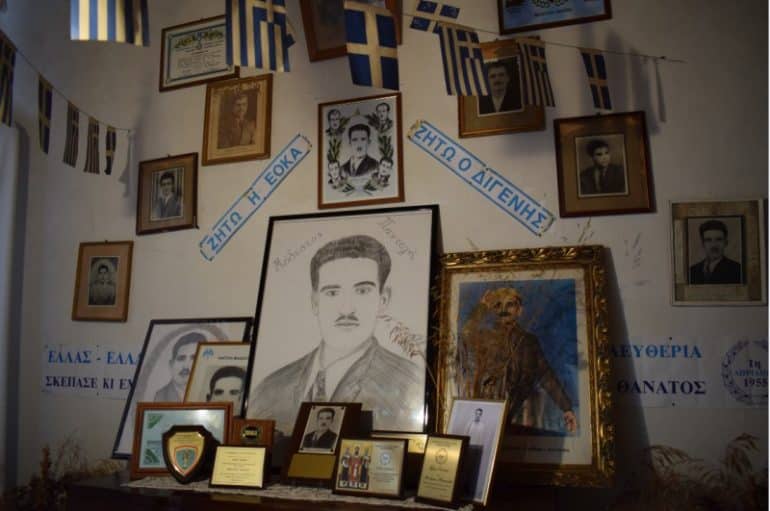On April 1, 1955, the Greek Cypriots revolted to shake off the British yoke, aiming at the "Union" with the motherland Greece. Their struggle ended with the "London-Zurich Accords" (February 19, 1959), by which Cyprus was declared an independent state.
The demand of the Greek Cypriots for the overthrow of the British occupation of Megalonisos and the union with Greece came to the fore in 1950, with the referendum of January 15 (organized by the Church of Cyprus and 95,7% of the voters were in favor of the union with Greece) and the election of Makarios III as Archbishop of Cyprus on October 20. It was a time when colonialism was blowing the whistle and one after another the conquered countries were vigorously seeking their independence.
The governments of Athens, at the urging of the Greek Cypriot leadership and under the pressure of the organizations of the Cyprus Struggle in Athens, made efforts to internationalize the issue, with successive appeals to the UN. On November 10, 1954, the retired colonel George "Digenis" Grivas (1897-1974) arrived on the island and formed the National Organization of Cypriot Fighters (EOKA), which on April 1, 1955 took action against the British colonialists, marking the beginning of the liberation struggle. of Cypriots. Born in Cyprus, Grivas had been an officer in the Greek army and during the German occupation he had founded the anti-communist organization "X", while he had taken an active part in the Civil War. The political leader of EOKA was Archbishop Makarios (1913-1977), later the first president of the Republic of Cyprus.
The fighting began in the evening hours of March 31 to April 1, 1955, with attacks on government buildings, police stations, the radio station, and a British camp in Famagusta. During the struggle, EOKA targeted the Greek Cypriot collaborators, the Turkish Cypriots of the "Taksim" organization who sought a "union" of Cyprus with Turkey, as well as AKEL members, who were "patriotic". EOKA accused them of being collaborators with the British. The dispute between the "right" and the "left" in Cyprus over the role of AKEL in the national liberation struggle lasts well to this day.
Despite the blood that was spilled and the fighters who gave their lives (Karaolis, Dimitriou, Pallikaridis, Auxentiou, etc.), the goal of the "Union" was not achieved. With the agreements of London and Zurich (February 19, 1959, Cyprus became an independent state on October 1, 1960.

The first witness Modestos Pantelis
The first dead of the armed liberation struggle of 1955-1959. He came from the village of Liopetri. He was born on December 16, 1923 and was killed on the night of the beginning of the liberation struggle (March 31 to April 1, 1955).
Modestos Pantelis, a farmer by profession, was introduced to EOKA before the start of the race, along with his three brothers and sister. They all belonged to Grigoris Auxentiou's group. On the night that was set to begin the struggle with acts of sabotage and bombing, Auxentiou and some of his men attacked British military installations in Decelia. Modestos Pantelis together with the later fallen Andreas Karios, had been ordered by Auxentiou to create a short circuit in the electrical lines to Famagusta and plunge the city into darkness, to aid the fighters who would be operating there. In their attempt to achieve the short circuit, joining the wires together with a rope they threw over them and pulling it down, Modestos Pantelis was electrocuted and fell dead on the spot.
This operation had taken place outside the village of Avgorou on the night of March 31st to April 1st. His body was found there the next day, by Pantelis' father. He was taken to his birthplace Liopetri, where he was buried.
